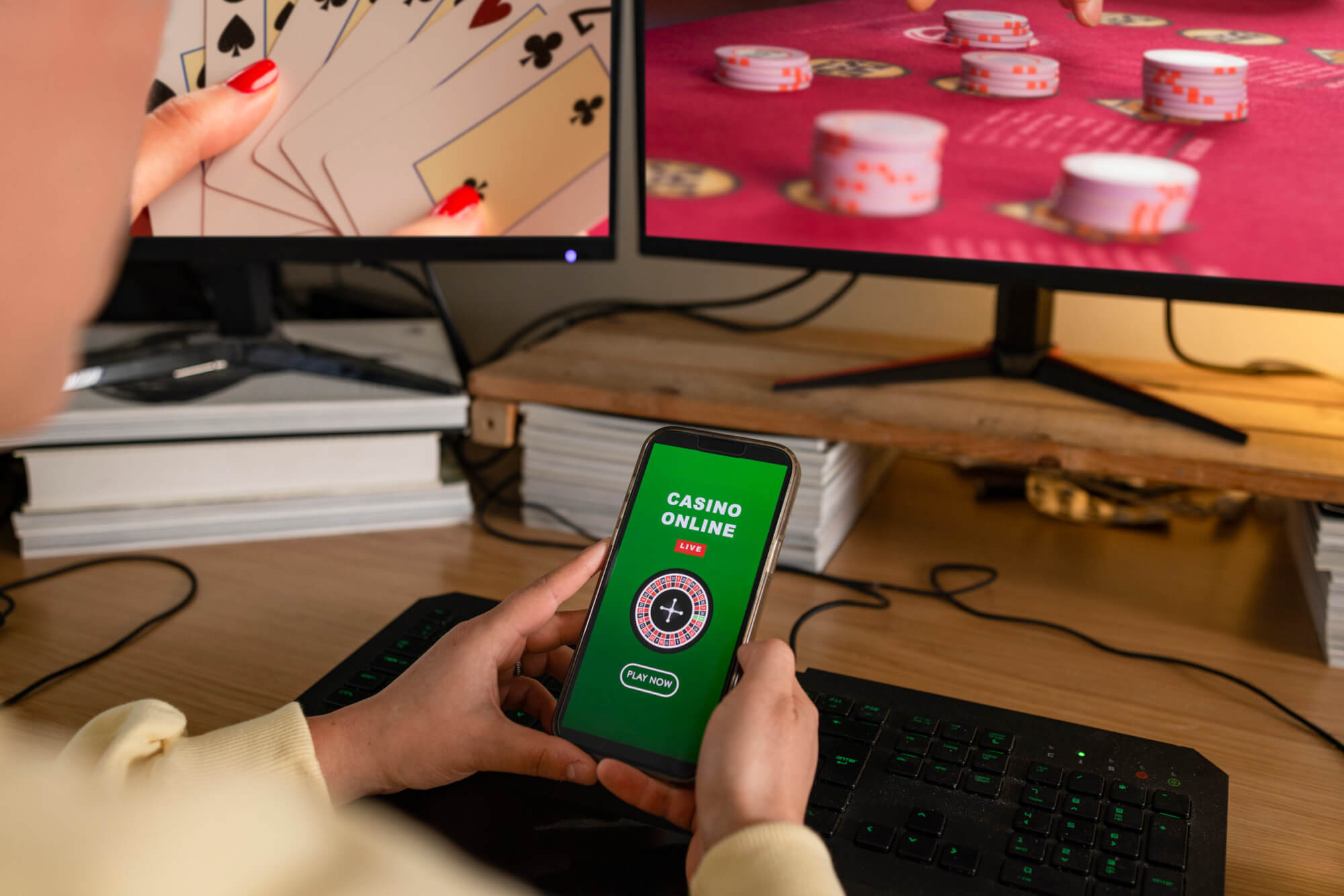The Rise of Online Teenage Gambling

According to official statistics published by the Gambling Commission, 27% of 11 to 17-year-olds in the UK had spent their own money on some form of gambling in the past 12 months. The rise in online gambling among teens is real, growing, but often misunderstood.
When we take a close look at what teenagers are doing online, a different picture starts to emerge, and you might not see or hear the word ‘gambling’ used at all. In this world, you’ll find loot boxes, online casinos, sports betting apps, digital scratch cards, and social media games that mimic gambling, disguised as entertainment. In these forms it is easy for teenagers to access and hide gambling activity.
Many teenagers are being introduced to gambling-like behaviours long before they turn 18. This includes:
- Online sports betting using apps and websites, sometimes with fake IDs or using parent accounts;
- Gambling-style games on social media, where winnings may be virtual, but the risk behaviours are real;
- Loot boxes and in-game purchases, particularly in popular video games which mimic the mechanics of gambling;
- Crypto casinos or unregulated websites that allow anonymous play using digital currency;
- Use of TikTok and YouTube to watch gambling influencers or betting tipsters;
- Trading apps and fantasy football leagues where money is involved, blurring the line between play and risk.
Whilst the language may be different and the way such platforms present gambling may look innocent, the draw is the same: fast reward, high stimulation, and the illusion of control.
Several factors have and continue to contribute to the surge in teenage gambling such as:
- Lockdowns and isolation- during the pandemic, teenage screen time increased exponentially;
- Normalisation of betting- through advertising, especially in sports and gaming culture. It is marketed to young people who see it as fun, competitive and even glamorous;
- Gaps in regulation, especially regarding loot boxes and crypto platforms, where many gambling features are not clearly labelled as such;
- Peer influence, particularly among boys, where betting is seen as a social activity or part of ‘lad culture’.
For some, access to these platforms may be casual entertainment; however, for others it is an early step towards addiction.
Whilst teenage gambling behaviour is often hidden, there are indicators which may signal problematic behaviour such as:
- Obsession with particular games, apps, or sports teams;
- Frequent talk about odds, wins, losses, or betting terminology;
- Sudden changes in mood linked to money or phone use;
- Borrowing or stealing money without explanation;
- Unexplained items bought with cash;
- Secrecy around phone activity, including the use of VPNs or secondary accounts;
- Disengagement from lessons, peer interaction or anxiety about performance. In such cases, gambling may be used as a form of escape.
Many teens do not see what they are doing as gambling, but the psychological hooks are the same and the risks are serious.
The Link to Mental Health and Safeguarding
Gambling behaviour presents very real safeguarding risks. Research shows that young people who engage in gambling behaviours are more likely to experience:
- Anxiety and depression
- Poor academic performance
- Risk-taking behaviours, including substance misuse
- Social withdrawal or online dependency
- Suicidal thoughts in extreme cases of gambling addiction
Some teenagers may use gambling to cope with stress, low self-worth, or issues at home. Others may be drawn in by peer pressure or the dopamine hit of ‘just one more win.’ In some cases, gambling habits intersect with criminal exploitation such as money laundering, scams, or fraud via gaming platforms.
The Role of Schools and Academies
As part of the duty of care remit within their safeguarding remit, schools must identify gambling as risky behaviour. Staff should be curious and make space for conversations on the topic. School measures should include:
- The inclusion of regular gambling awareness in PSHE or life skills lessons;
- Discussions with pupils about in-game spending, loot boxes, and the risks of pay-to-play mechanics;
- Staff child protection training should include awareness of the safeguarding risks associated with gambling, especially where there are concerns about unusual money-related behaviour;
- Making sure pupils know how to seek help. For example, signposting to GamCare, Ygam, or Childline;
- Ensuring the DSL and deputies are aware of gambling as an emerging safeguarding concern;
- Inclusion of gambling in safeguarding risk assessments;
- Being especially alert around major sporting events e.g. the Euros, World Cup, or boxing fights, where betting culture intensifies.
As online culture develops, so does the face of gambling culture. It is present, not always overtly, in games, apps, and the online spaces that teenagers use every day.
Whilst not every teen who engages with these platforms will develop a gambling problem, patterns can start young and go unnoticed. Professional awareness and guidance offer young people the confidence to choose risk-free fun and can provide them with the tools to avoid harm.
SSS Learning
1 September 2025